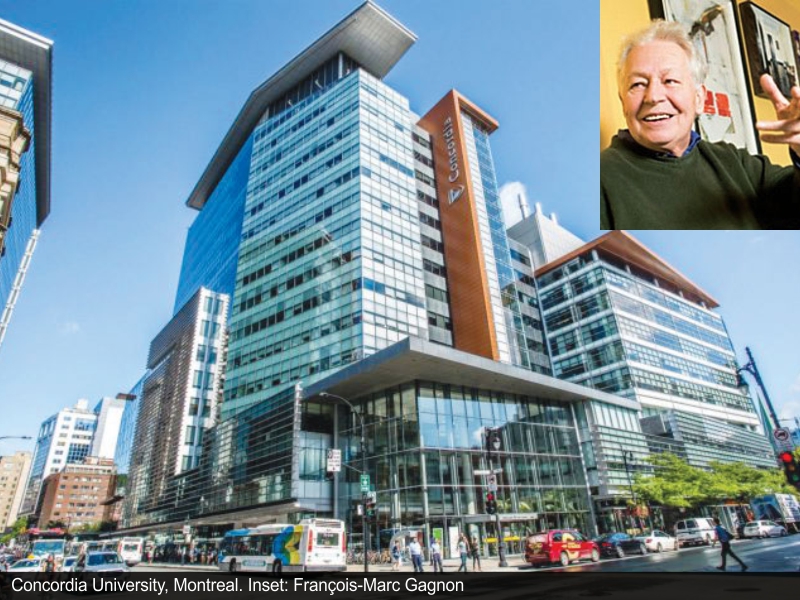
A university has apologised for its handling of an online course that was based on lectures by a professor who had died, in a case which highlights the risk of encroachments on intellectual property, made more likely in the Coronavirus era.
The art history class at Montreal’s Concordia University surprised and distressed second-year student Aaron Ansuini when he tried to reach the instructor, François-Marc Gagnon, and found that the renowned French-Canadian scholar had died in 2019. “Given that Dr. Gagnon is the name and face all over the course platform itself, it naturally seemed like he would be the one communicating with us,” says Ansuini. “So it’s just jarring to learn that he’s dead.”
The complaint at Concordia drew especially heavy attention because Ansuini is a prolific YouTube vlogger with tens of thousands of subscribers, and he emotionally described his experience over Twitter. Concordia University responded by noting that the course outline properly attributes “video lectures” to Prof. Gagnon while listing Marco Deyasi, an assistant professor of art history, as the ‘instructor’. However, it expressed regret over the episode and updated Prof. Gagnon’s biography in the course information provided to students.
Sam Trosow, law professor at Western University and an adviser to the Canadian Association of University Teachers (CAUT), says academics in the country usually own the rights to their own classroom presentations. But faculty everywhere might want to be more vigilant as the pandemic puts them into online environments where their work is recorded and the legalities aren’t clear. “Maybe what was just an exception before, is something that’s going to happen a lot right now, and people need to worry about this,” he says.
Even before the Concordia case arose, Prof. Trosow says he was working with CAUT to alert faculty about the possibility of their online work being reused without their permission during the pandemic lockdown. “I’m very worried about cost-conscious institutions cutting corners with recorded content,” he says.
Aaron Nisenson, senior counsel at the American Association of University Professors, says most American institutions had “reaffirmed their policies regarding faculty ownership of traditional academic works” during Covid.
But the case as described at Concordia did seem unusual, admits Nisenson. “Generally we would view that as unacceptable under our policies,” he says.
Prof. Gagnon’s family told a Canadian news agency that they see no ill intent and are pleased to hear that students are still learning from him.
(Excerpted and adapted from Times Higher Education and The Economist)
Also read: Australia: Confusing admissions scenario



























